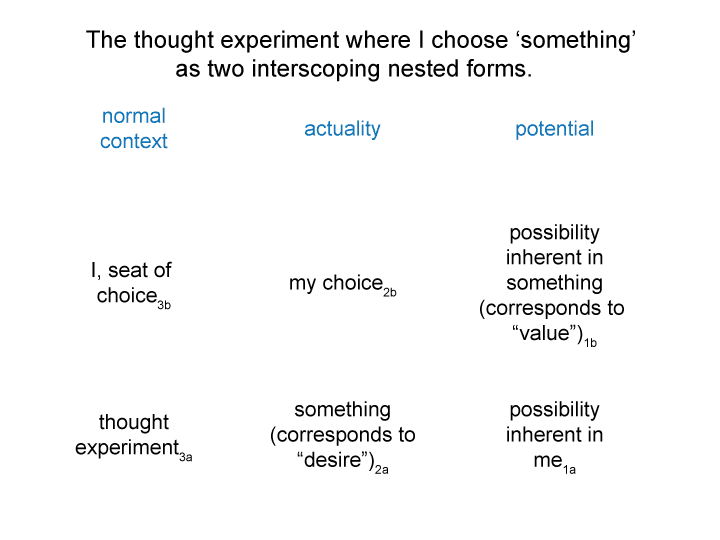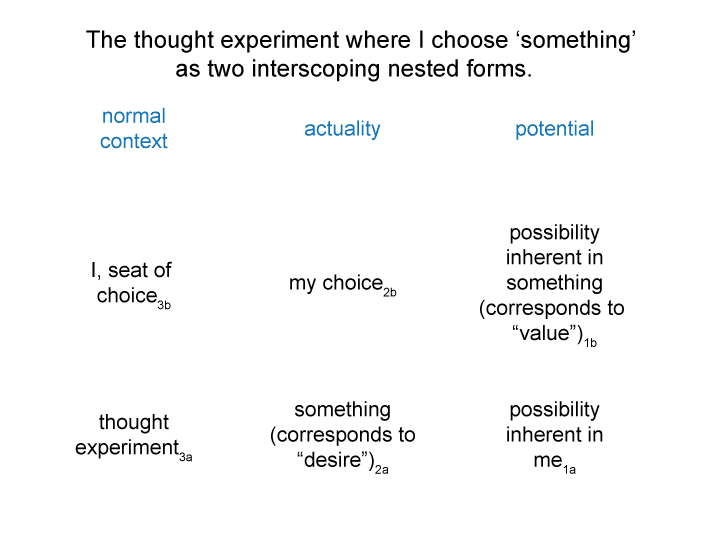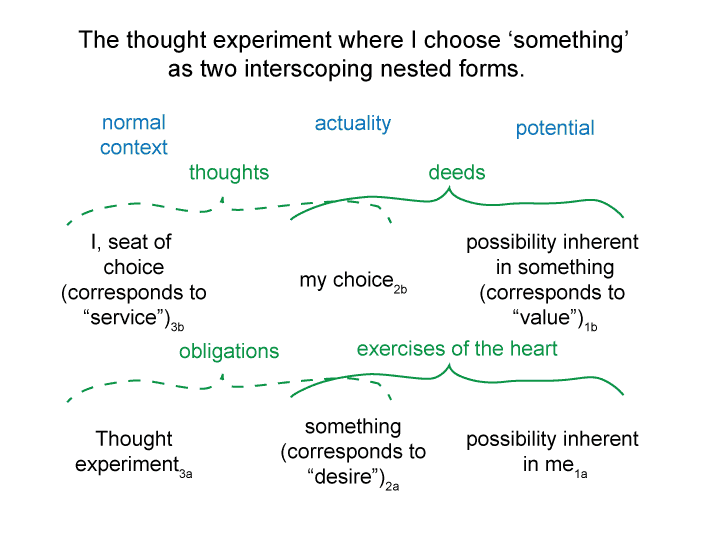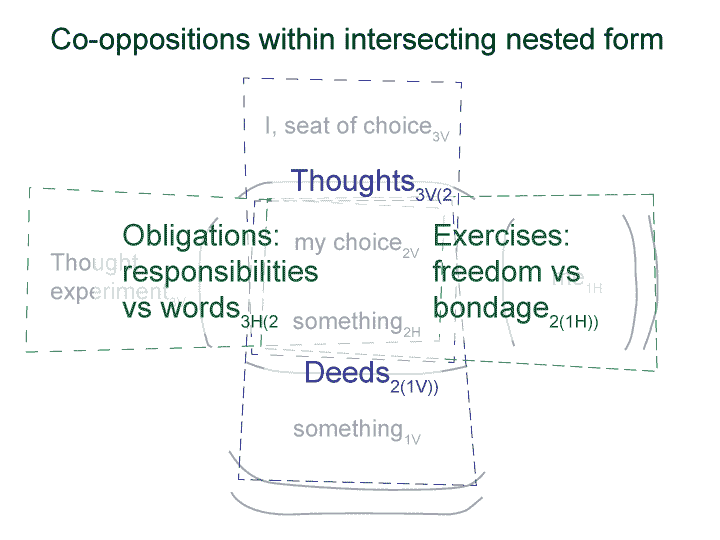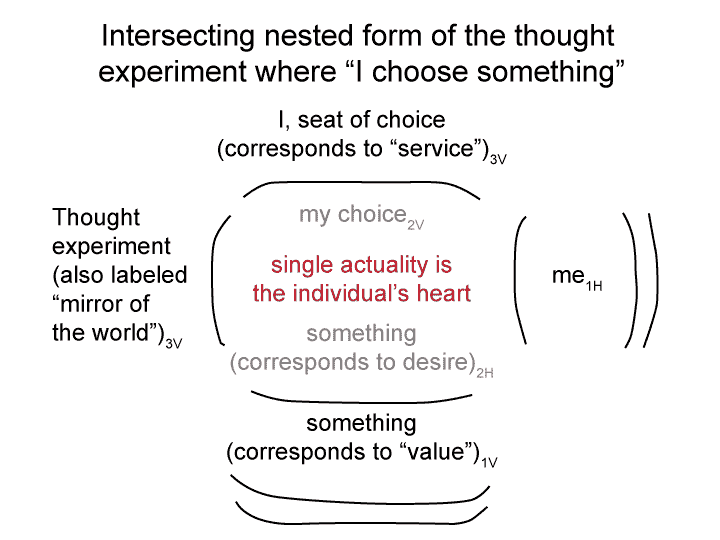Man and Sin by Piet Schoonenberg (1964) 2.3 FX
[The actualities of something2a and my choice2b are readily apparent to others.
My choice2b virtually emerges from and situates my desire2a.
So let me write these two nested forms out explicitly.
I, seat of choice3b( my choice2b( something corresponding to value1b))
Thought experiment3a( something corresponding to desire2a( me1a))]
Man and Sin by Piet Schoonenberg (1964) 2.3 FW
[The possibility underlying my choice1b sounds like the word “value”.
So does the thought experiment3a taking me?
The thought experiment3 brings something2a into relation with the possibilities inherent in me1a.
The possibilities inherent in me1a sound like the word “desire”.]
Man and Sin by Piet Schoonenberg (1964) 2.3 FV
Summary of text [comment] page 83
[Where does I, seat of choice3b take me?
I, the seat of choice3b or perhaps, my heart2 determines the meaning of something1b. I3b guarantee that meaning1b
Plus, a message about something3b comes from me (my seat and my heart) when my choice has been made2b.]
Man and Sin by Piet Schoonenberg (1964) 2.3 FU
Summary of text [comment] page 83
[In section 2.3, Schoonenberg discusses freedom.
My model for freedom is the thought experiment where ‘I choose something’.
So, I ask the question:
When I, the seat of choice chooses, do I choose a value?
If so, how does value link to the word ‘freedom’?]
Man and Sin by Piet Schoonenberg (1964) 2.3 FP
Summary of text [comment] page 83
‘Freedom of will’ is implicit in the Scripture’s use of the word ‘heart’.
What comes from the heart?
Thoughts, words and deeds come from the heart. Choice comes from the heart.
[Have we seen something like this before?]

